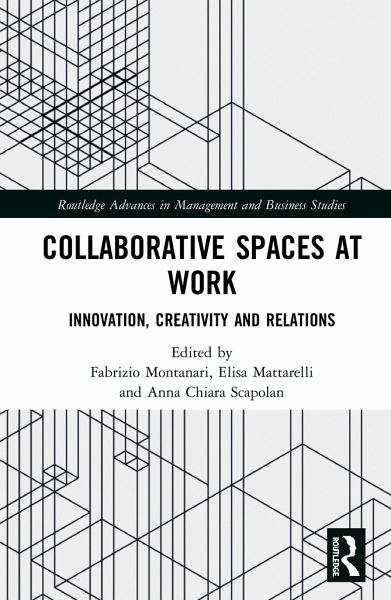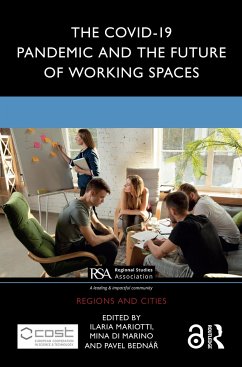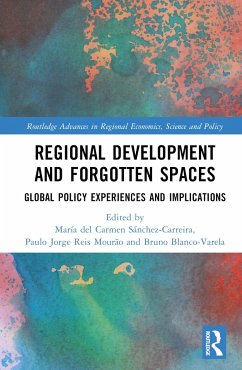
Collaborative Spaces at Work
Innovation, Creativity and Relations
Herausgeber: Montanari, Fabrizio; Scapolan, Anna Chiara; Mattarelli, Elisa
Versandkostenfrei!
Versandfertig in 1-2 Wochen
169,99 €
inkl. MwSt.

PAYBACK Punkte
85 °P sammeln!
Collaborative spaces are more than physical locations of work and production. They present strong identities centered on collaboration, exchange, sense of community, and co-creation, which are expected to create a physical and social atmosphere that facilitates positive social interaction, knowledge sharing, and information exchange. This book explores the complex experiences and social dynamics that emerge within and between collaborative spaces and how they impact, sometimes unexpectedly, on creativity and innovation. Collaborative Spaces at Work is timely and relevant: it will address the g...
Collaborative spaces are more than physical locations of work and production. They present strong identities centered on collaboration, exchange, sense of community, and co-creation, which are expected to create a physical and social atmosphere that facilitates positive social interaction, knowledge sharing, and information exchange. This book explores the complex experiences and social dynamics that emerge within and between collaborative spaces and how they impact, sometimes unexpectedly, on creativity and innovation. Collaborative Spaces at Work is timely and relevant: it will address the gap in critical understandings of the role and outcomes of collaborative spaces. Advancing the debate beyond regional development rhetoric, the book will investigate, through various empirical studies, if and how collaborative spaces do actually support innovation and the generation of new ideas, products, and processes. The book is intended as a primary reference in creativity and innovation, workspaces, knowledge and creative workers, and urban studies. Given its short chapters and strong empirical orientation, it will also appeal to policy makers interested in urban regeneration, sustaining innovation, and social and economic development, and to managers of both collaborative spaces and companies who want to foster creativity within larger organizations. It can also serve as a textbook in master's degrees and PhD courses on innovation and creativity, public management, urban studies, management of work, and labor relations.














